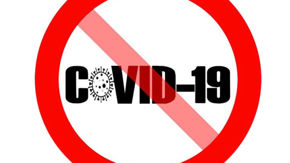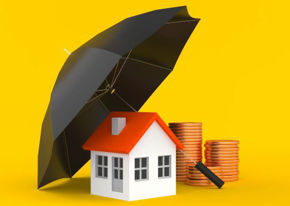(Illustrations by Rafael Varona for The Washington Post)
Social media is full of financial influencers — or “finfluencers” — dispensing advice. On TikTok alone, videos tagged with #money have amassed more than 15.3 million posts.
While most Americans get their financial advice from friends, relatives or professionals, a Bankrate survey found that roughly a third of U.S. adults have turned to social media for guidance. Within Generation Z, it was nearly half.
We scanned the most popular hashtags used by money-minded TikTokers and analyzed their top videos to determine the credibility of the information being posted.
How would you rate the recommendations? Take our quiz to see if you can spot the sensible advice from the foolish.
QUESTION 1 OF 8: Use reward credit cards to save money.
- Go for it!
- Think twice.
- Don't do this.
Answer: Think twice.
TikTok’s take
On #MoneyTok, credit is king. Nearly 175,000 TikToks have used the hashtag #creditcard, amassing billions of views. One user touted having six credit cards at age 23, including one with an annual fee of $695. Generally, their take is that you’re leaving money on the table if you aren’t using reward credit cards to accumulate points for travel rewards, cash back, and other perks.
Michelle’s take
Be very careful when stacking up on reward cards. Yes, there are perks, but there also are perils. The psychology and profits behind reward cards are to get you to spend more money. Don’t neglect to consider the card’s annual fee, which can run from just under $100 to several hundred dollars annually.
Also, have you looked carefully at your credit card receipts lately? Although not specific to reward cards, many businesses are passing along credit card processing fees to consumers. In some cases, a merchant is charged more when a customer uses a reward credit card. So you may get 2 percent cash back, but you may be paying a higher price to use credit, likely making the reward a wash. And that cash-back feature is a fool’s errand if you don’t pay off your credit card every month.
QUESTION 2 OF 8: Budget using the envelope system.
- Go for it!
- Think twice.
- Don't do this.
Answer: Go for it!
TikTok’s take
With this popular money-saving trend, users designate an envelope for a certain expense (groceries, gasoline, etc.) and put in enough cash to cover it for the month or whatever budgeting period you decide. Once the money is gone, you can’t spend any more. Nor can you borrow from other envelopes.
Michelle’s take
Swiping a card or tapping your phone makes it easy to overspend. This low-tech way to get disciplined about managing your money has been used for generations. If you go to the grocery store, you are limited by what’s in the food envelope. Handling cash can motivate you to stick to your budget because it’s tactile and you immediately feel the pain of spending the money.
There is a caveat with this method. You may not want to broadcast having a lot of cash in your home on social media. There are ways for people to find out where you live. Just saying! Use common sense, and keep your money in a safe or lockbox.
QUESTION 3 OF 8: Buy a house for your baby.
- Go for it!
- Think twice.
- Don't do this.
Answer: Don't do this.
TikTok’s take
With housing so expensive, searches for “home-buying” and “homeownership” yield hundreds of thousands of results. Many content creators recommend real estate as the best way to build generational wealth. Some go so far as to advise parents to buy a home for each child, as early as at the child’s birth. People are told they should rent the property until the kid is ready for college. Then you could sell it and use the proceeds for school expenses or continue renting it as an investment. The bottom line is everybody and their kids can get rich with real estate.
Michelle’s take
Homeownership is one key to the American Dream. But here are two words to consider: Great Recession. In the run-up to the 2007-2008 housing crisis, many Americans believed home prices moved in just one direction — up. However, home prices fell about 30 percent on average, according to the Federal Reserve. Americans lost $9.8 trillion in wealth as those values plunged.
Extreme caution is warranted for any recommendation that only presents the upside of real estate investing. Many people, especially young adults, are understandably worried they will never be able to afford a home, so how are they supposed to swing multiple mortgages for their kids?
QUESTION 4 OF 8: You can make a good living without ever leaving home.
- Go for it!
- Think twice.
- Don't do this.
Answer: Think twice.
TikTok’s take
There’s extra cash to be made — anytime, anywhere — if you land the right “side hustle.” TikTok is flush with options, including email marketing, survey taking, virtual transcription, and video editing. We’re living in a gig economy, and there are plenty of ways to make money from the comfort of your own home without any experience or a degree.
Michelle’s take
The more streams of income you can have, the better. But while some posts suggest that you can make big money with little effort, any legitimate idea may come with upfront costs and often require a lot of creativity and work on your part. Don’t believe all the hype. Sure, you can earn a living with some of these jobs, but do your research and be careful. It may turn out you need to pay for a course or equipment before you start earning money. Always take precautions with work-from-home schemes that promise big paydays.
QUESTION 5 OF 8: Everybody should be their own boss.
- Go for it!
- Think twice.
- Don't do this.
Answer: Think twice.
TikTok’s take
Everyone should be an entrepreneur; in fact, many finfluencers say it’s essential if you want to save money on taxes and build wealth. There are lots of TikToks encouraging people to form LLCs (limited liability companies). If you do, they preach, then you’d be entitled to take lots of deductions, and you’ll be on your way to a wealthy life.
Michelle’s take
This is a big red flag. The popularity of “anyone can be an entrepreneur” advice stems from the uptick in gig work and the financial philosophy that a side hustle is the path to untold prosperity. However, there are pros and cons to running your own business. About 20 percent of new businesses fail within two years, 45 percent during the first five years, and 65 percent within 10 years, according to Investopedia.
Also, don’t follow advice that claims you can deduct personal expenses if you have a business. “Personal, living, or family expenses are generally not deductible,” according to the IRS.
QUESTION 6 OF 8: Everything is negotiable, from your salary to your rent.
- Go for it!
- Think twice.
- Don't do this.
Answer: Go for it!
TikTok’s take
You, too, can talk your way into a better salary or lower rent; just watch our videos on how to negotiate. The first offer should never be the final offer. These businesses need you more than you need them.
Michelle’s take
It never hurts to ask. For example, if your landlord is raising your rent, ask if there is room to negotiate. Also, check local laws to ensure your leasing office is staying within the legal bounds of how much they are allowed to raise rent. If you don’t plan on moving, consider agreeing to sign a longer lease agreement at a set price. If you’ve been a good and on-time paying tenant, you might be able to get a break on a rent increase. They don’t need to find a new tenant and you don’t need to move.
Some TikToks provide solid advice on tips for getting a salary bump. When asked about their most recent hiring, “Most U.S. workers who are not self-employed say they did not ask for higher pay than what was initially offered,” according to a Pew Research Center survey. In fact, 60 percent of workers settled for the first offer, Pew found.
QUESTION 7 OF 8: Keep all your extra money in a high-yield savings account.
- Go for it!
- Think twice.
- Don't do this.
Answer: Think twice.
TikTok’s take
Put your money in a high-yield savings account. Many TikTokers started offering this advice as interest rates on deposit accounts jumped in the Federal Reserve’s battle against inflation. So now, some savings accounts — most often at internet-only financial institutions — pay about 5 percent in interest, after years of rates hovering at or below 1 percent.
Michelle’s take
Generally, it makes sense to park your money in a high-yield savings account if you don’t need to use the funds immediately. But don’t let money sit in a savings account when you have credit card debt accumulating interest. Keep enough in savings to cover an emergency, but then take the rest of the money and pay down debt, particularly if it’s high-interest debt.
And a high-yield account is not a replacement for long-term investing. Unless you’re hoarding hundreds of thousands of dollars, you will not earn enough from your high-yield account to retire comfortably. Consider putting some extra funds into a 401(k) and/or a Roth IRA. Over time, it’s possible to become a 401(k) millionaire.
QUESTION 8 OF 8: Everyone should be investing in cryptocurrency.
- Go for it!
- Think twice.
- Don't do this.
Answer: Dont do this.
TikTok’s take
More than 7 million videos use some derivative of the word “crypto” in a hashtag . Cryptocurrency enthusiasts say you need to invest now to maximize profits. Some influencers go so far as to say the dollar is dying and cryptocurrency will be the new standard legal tender. By their estimation, you can become a millionaire in no time by investing in cryptocurrency. Some even suggest risky financial practices, like tapping the equity in your home or using a personal loan to buy crypto.
Michelle’s take
Borrow to buy crypto? Do I have to tell you why this is the most foolish thing you can do with your money? First, don’t use borrowed money to invest. Second, don’t use borrowed money to invest! If it all comes crashing down, you will still be expected to pay that money back … in dollars!
Sure, some folks — particularly early adopters — have successfully invested in cryptocurrency. But there are also many scams out there, trying to convince people that investing in crypto is the best way to get rich and even build generational wealth. Yes, bitcoin hit an all-time high recently. It’s also has had some spectacular crashes. Investing in crypto is highly speculative and inappropriate for most everyday investors.
Summary
When it comes to personal finance, make it personal! You need to figure out what works best for you and what requires some independent research. The most reliable way to build wealth is to stick to a budget, save early and often, and live below your means. It’s not as enticing as a TikTok hashtag, but it’s tried and true.
It’s great if a TikTok video gets you interested in personal finance. But please, vet what you see. A lot of advice is just bad and some could get you in trouble with the IRS.
By the way, the worst thing you could ever do with your money is show it off, especially online. It’s not that hard to find someone in real life, especially if your other posts show where you work or attend school. There are bad people out there. Don’t make it easy for them to find you and your money.











